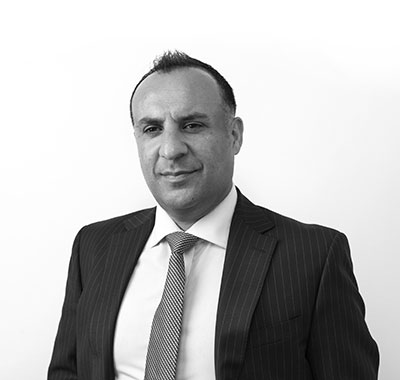Conspiracy to Defraud
Conspiracy to defraud is a serious offence with the potential for a substantial prison sentence if you are found guilty and proceedings thereafter to try and secure the recovery of any monies lost. For these types of complex charges, it is essential to have the support of a specialist criminal defence team from the earliest stage of proceedings so that your defence is handled effectively right from the point of arrest.
With the right defence strategy, is often possible to secure the dropping of charges due, for example, to a lack of evidence or flaws in the approach of the police. Where prosecution cannot be avoided, our specialist fraud defence lawyers can prepare your case and represent you in the most effective way possible, giving you the best chance of acquittal or minimising any penalties on conviction.
We understand how stressful and confusing being arrested and prosecuted can be, so we provide clear, practical legal advice and guidance to help make your situation as easy to deal with as possible.
Get in touch
Why choose JD Spicer Zeb?
- 1000s Cases Dropped
- 24/7 Emergency Phonelines
- 100s Years Combined Experience
 Read all Reviews
Read all Reviews
Recent Cases
There is limited recourse for you if you are falsely accused. Click a selection of the cases we have covered. The best thing you can do is to instruct an excellent solicitor from the outset.
Our expert criminal defence team have many years of experience dealing with serious fraud charges of all varieties, allowing us to offer the confident, high-quality representation you need.
While you may be offered the services of a duty solicitor when arrested for conspiracy to defraud, the likelihood is that they will not have particular expertise with these types of complex and serious charges. They require specialist skill and expertise. Any mistakes made during a police interview can be very hard to rectify, so we strongly recommend working with our specialist fraud defence team right from the start.
You should never answer any police questions without a solicitor present.
Our conspiracy to defraud solicitors provide:
- 24/7 legal support in person and over the phone, 365 days a year
- Representation anywhere in England or Wales
- Accredited Police Station Representatives to support you during a police interview
- Clear, effective legal advice in any language (see our languages spoken)
How can we help?
Common questions
We always work with the most experienced and best leading UK barristers, KCs (Kings Counsel). We cover all criminal cases 24/7 at the police station and court. Offices in London, Birmingham, and Manchester cover cases across England and Wales. We can offer Legal Aid and affordable Private fee agreements. We can see you the same day, including virtually. Our Senior Partners supervise all of our cases.
How quickly do you respond?
We respond quickly even during out of hours. We do not get our work by paying for online adverts but based on the fact that few criminal law firms can match our 45 years of experience. Most of our cases are still from word-of-mouth recommendations from satisfied clients. We are called daily by dissatisfied clients from firms with less experience than us. We respond very quickly to new enquiries. We know what clients seek and so we update clients rapidly.
Can you get cases dropped?
Yes, read about the recent cases we've helped our clients with here.
We always keep you updated and give straightforward advice. We will get cases dropped early where the case is weak or should not be prosecuted. We will be upfront with you about where you can benefit from a good result with an early guilty plea, such as a discount on your sentence. As we work on cases across all levels with clients from all walks of life, we are excellent at giving clear, spot-on advice. As an established firm, we can allocate a whole team to your case often at short notice to secure evidence to minimise the damage to you.
Have you won any awards?
OUR PROFESSIONAL BODY THE LAW SOCIETY AWARDED US IN OCTOBER 2020 WITH THE EXCELLENCE IN CLIENT SERVICE AWARD AND STATED -
"JD Spicer Zeb demonstrated a clear commitment to client service through their work with vulnerable and diverse individuals in what can be severely traumatic circumstances".
Do you offer free consultations?
Where it is possible, we aim to provide an initial consultation to you. If we can speak to you, we can if required inform you about –
- Whether we can take the case on and our relevant experience.
- Public and private funding benefits.
- Assistance in applying for legal aid where we are likely to accept instructions.
- An outline of options in police interview only. We will not advise you on which option to adopt.
- Providing our free written guide explaining the police station process.
- The gravity of routine and day-to-day offences you face.
- Consequences of not attending the court or police station.
- Consequences of interfering with any witnesses.
- Retaining any evidence in support of your case.
- If possible an outline of the elements of the offence that the police or CPS must prove.
- This consultation will normally be by telephone or email and will only be for as long as we deem necessary to establish if we can act for you. If we cannot usefully give you any advice in this manner then we will not continue with the consultation. We will not discuss the case in depth for you to be able to decide on your plea or any significant aspect of the case, as this cannot be undertaken informally.
- Referring you, if possible, to other firms for matters out of our specialism or if we cannot help.
Consultations do not apply to the following cases –
- If we do not intend to take the case on.
- Road Traffic cases, drink driving, drug driving, driving bans, speeding, no insurance, mobile phone use, points etc.
- In all cases where we do not have the capacity to take your case or the availability of suitably qualified staff to provide an initial free consultation. This is applicable in all cases but especially where a more senior lawyer is required because of your personal needs or the complexity of the case.
- Harassment/stalking/ coercive behaviour/malicious communications or road traffic cases and most sensitive cases. These cases are often too complicated to assess in short consultations.
- The locations concerned may be too distant to represent you adequately or it may not be cost-effective for you or us.
- The case is too complicated to assess or raises various charges or facts, complexity, or history to be considered informally or in a short consultation.
- In most Legal aid transfers where legal aid is granted to another firm except in very grave cases, we may assess the case and merits for a transfer.
- If your relationship has broken down with your existing solicitor or several solicitors.
- If you have been released under investigation and have already had a police station attendance.
- If you hold legal aid with another firm and seek a second opinion.
- If you are calling on behalf of the client as a friend or family member unless you have full authority and full facts.
- To businesses.
- Advising whether you were given good advice by your other solicitor.
- Whether to decide to plead guilty or not guilty.
- Whether you have an arguable defence in law or factually complicated defences.
- Any advice you have had after your first court appearance.
- Any advice on appeal on conviction or sentence.
- If we feel we are unable to communicate with you.
- If we are likely to be conflicted or breach our professional rules.
Speak to our conspiracy to defraud solicitors today
For a free initial consultation on your legal position and the available options, contact our local offices in London, Birmingham or Manchester.
For urgent advice at any time of day or night regarding conspiracy to defraud in the UK, please call our Emergency Number 07836 577 556.
You can also email: solicitors@jdspicer.co.uk or fill out our online enquiry form and we will get back to you quickly.
Our expertise with conspiracy to defraud charges
With more than 40 years of experience representing clients in fraud cases, our fraud defence lawyers have the expertise to secure the best possible outcome for you under even the most challenging circumstances.
Our team includes a number of accredited police station representatives, so we are able to offer instant advice and representation 24/7 for anyone arrested in connection to an offence of conspiracy to defraud.
We regularly represent clients in both Magistrates’ Court and Crown Court and have established links with some of the country’s leading barristers specialising in fraud cases. Our team have the experience and skills to ensure all relevant evidence is considered and used effectively for your defence making sure that no possible legal angle is overlooked.
We are accredited by the Law Society for Criminal Litigation and have also achieved Lexcel accreditation, reflecting the high standards of our legal practice.
Common questions about conspiracy to defraud offences
What is conspiracy to defraud?
Conspiracy to defraud is a common law offence. Common law in the UK essentially means that the offence of conspiracy to defraud is not defined in a specific Act of Parliament but rather has been created by the courts.
A conspiracy to defraud is an agreement between two or more people to carry out a plan that would prejudice the rights of another person or run a risk of doing so. That might include:
- A person or persons being dishonestly deprived of something which is theirs or that they would normally be entitled to e.g., money, property or other assets.
- A person or persons being deceived into acting in a way that goes against the duty they owe to their employers or clients running a risk of financial loss.
A key point to understand is that to be charged with conspiracy to defraud, you do not need to have directly participated in any activity that is inherently criminal. Proof that someone had planned to defraud someone else, no matter the method, is all that is required for an allegation to be put forward.
That said, for a conspiracy to defraud offence to be proven, there needs to be solid evidence to demonstrate that this plan was in place and that the accused had prior knowledge of it. Computer records, paperwork, witness testimonies and phone calls are all examples of the types of evidence that will be used to prove a conspiracy to defraud offence.
For example, if you rent an office as part of a plan to create a fake business for the purpose of defrauding someone, you could be charged with conspiracy to defraud even though renting an office is not in and of itself illegal. It would suffice if you were part of an agreement to create the business and you were acting dishonestly.
Conspiracy to defraud is triable on indictment only i.e., prosecution will automatically take place in Crown Court, rather than a Magistrates’ Court.
What is the sentence for conspiracy to defraud?
The sentence for conspiracy to defraud will depend on two factors:
- The amount of harm caused, intended or risked by the offence (i.e., the financial value of the loss experienced by the alleged victim or victims).
- The role the defendant is alleged to have taken in the offence.
As per conspiracy to defraud sentencing guidelines, the potential sentence can range from a medium level community order up to 8 years’ custody. The maximum is 10 years.
- For a category 1 offence (involving financial losses of £500,000 or more) the sentencing range is 18 months’ to 8 years’ custody.
- For a category 2 offence (involving financial losses of £100,000 – 500,000) the sentencing range is 26 weeks’ to 6 years’ custody.
- For a category 3 offence (involving financial losses of £20,000 – 100,000) the sentencing range is a medium level community order to 4 years’ custody.
- For a category 4 offence (involving financial losses of £5,000 – 20,000) the sentencing range is a fine of 75-125% of your weekly income to 3 years’ custody.
- For a category 5 offence (involving financial losses of less than £5,000) the sentencing range is a fine of 75-125% of your weekly income to 1 year’s custody.
What are my rights when arrested on suspicion of conspiracy to defraud?
If you are arrested for or charged with conspiracy to defraud, you need to be clear about your rights so you can make sure you do not unintentionally undermine your defence.
When arrested, please remember:
- The arresting officer must tell you what specific offence you are being arrested for
- You do not have to answer any questions you are asked
- You should never answer police questions without a solicitor present
The police are required to caution you with the following words:
You do not have to say anything. But it may harm your defence if you do not mention when questioned something which you later rely on in court. Anything you do say may be given in evidence.”
In an investigation for conspiracy to defraud, the police are likely to search premises and seize items. Police search powers are complex, but open to challenge, and you should take legal advice, particularly if the police wish to seize legal papers.
Following a police interview for conspiracy to defraud, you may be:
- Charged with a specific offence
- Released under investigation
- Release with no further action
If you are charged with an offence, you will either be released on bail or remanded in custody to await trial.
Pre-Charge Bail
If you are released on pre-charge bail (also simply referred to as being released on bail), after being interviewed for conspiracy to defraud, this means that the police will be continuing their investigation to gather more evidence before they are able to make a final charging decision. Whilst the police are making their decision they may impose bail conditions, such as restrictions on where you can go and requirements to attend the police station on a certain day.
To find out more in relation to pre charge bail please use the links provided below:
- Pre-charge bail and Released Under Investigation (RUI)
- On Bail But Not Charged - What Does It Mean?
- How long can you be on bail without charge UK?
Contact our conspiracy to defraud lawyers now
For urgent specialist advice, immediate police station representation or to speak to us confidentially about a charge of conspiracy to defraud or any other criminal matter, please do not hesitate to get in touch.
You can contact a member of our dedicated team of criminal defence lawyers in London, Birmingham, and Manchester by telephone on:
- Brent & Camden London Office: 020 7624 7771
- Manchester Office: 0161 835 1638
- Birmingham Office: 0121 614 3333
- City of London: 0207 624 7771 – our senior Solicitors and Partners can meet by appointment in the City.
Or email: solicitors@jdspicer.co.uk
Alternatively, you can fill out our quick online enquiry form, and we will get back to you as soon as possible.
24/7 legal representation for conspiracy to defraud
Please get in touch for a free initial consultation with one of our expert conspiracy to defraud solicitors, as well as for immediate advice and representation.
For immediate representation and advice, you can contact our Emergency Number: 07836 577 556, and we will provide you with the urgent assistance you need.
How can we help?
Useful Information
- How can I get the CPS to drop the charges against me?
- How can I get the police to drop charges against me?
- How can I get the police to caution me?
- Police Stop and Search UK
- Pre-charge bail - What You Need to Know
- Read our Police Station Advice Guide
- Recovering Your Property From The Police
- Released Under Investigation - What You Need to Know
- Types of Evidence used in Law
- Voluntary Police Interview - What You Need to Know
- What is a 'No further action' letter?
- What to expect in Police Custody
- Why Choose a Private Solicitor for a Magistrates' or Crown Court Case?
-
- Umar Zeb
- Senior Partner - Head of Private Client Crime
-
- Lisa Nicol
- Managing Partner - Head of Crime & Serious Cases
-
- Kirit Khushal
- Senior Partner Personal Injury
-
- James O'Donnell
- Partner Crime - Serious Cases
-
- Sanjay Cholera
- Partner Crime Advocacy
-
- Ramandeep Rai
- Partner Family







